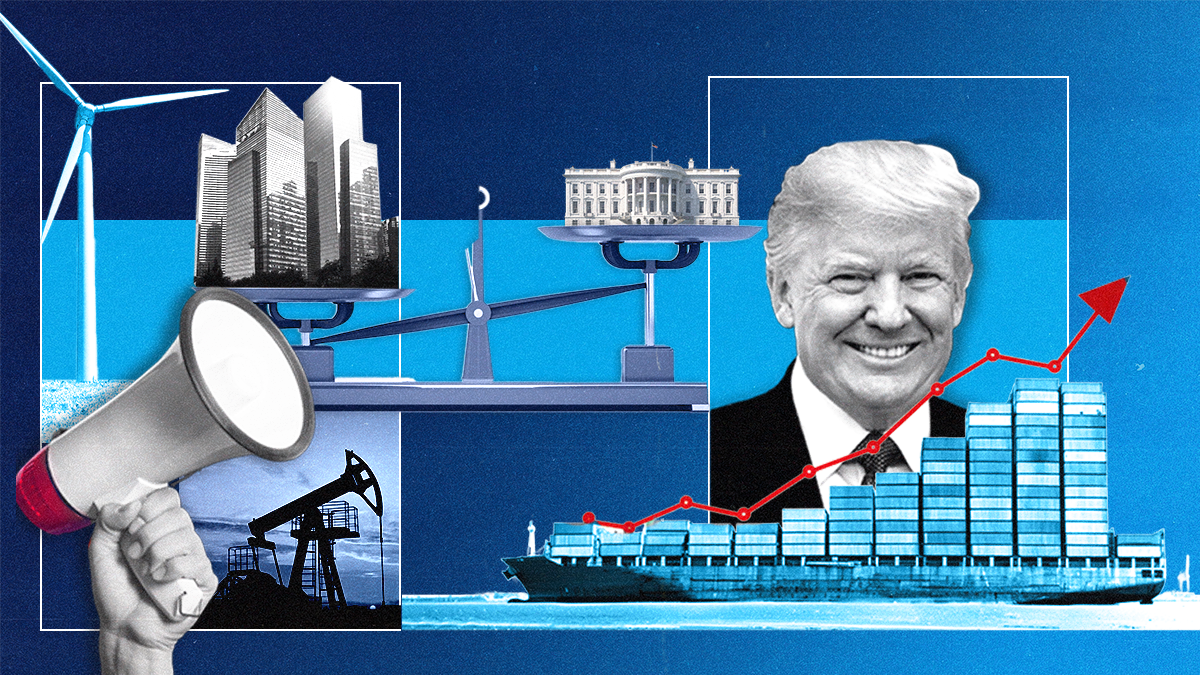This week we rolled out GZERO’s Top 10 Political Game Changers of the Year, which you can check out here.
Just hours ago, we named Donald Trump our No. 1 political game changer of the year. Elon Musk, whose net worth just topped a record-breaking $400 billion, is No. 2.
Let’s do a quick detour on that just to get some sense of proportionality: How much is $400 billion? It’s bigger than the nominal GDP of Musk’s birth country, South Africa, as well as countries like Belgium, Portugal, New Zealand, and Qatar (net worth and nominal GDP, of course, are not directly comparable measures but are used here to illustrated the scale of Musk’s wealth).In fact, his net worth is higher than the nominal GDP of all but about 40 countries in the world, but that’s not even why we chose him as a top game changer of the year. Musk’s crucial help in electing Trump, the influence of his social media platform, X, in the culture and political wars around the world, and his breathtaking innovations in space, electric cars, tech, and AI were all factors.
But something both Trump and Musk said this week about foreign aid merits inclusion in our game-changer discussions.
As the Assad regime dramatically fell this week, President-elect Trump declared, “THIS IS NOT OUR FIGHT.” An aversion to foreign intervention and an America-first isolationism is not a surprising stance from Trump, and it’s one many Americans support. But Musk, who Trump tapped to lead the so-called Department of Government Efficiency, or DOGE, went even further: He expressed support for former Rep. Ron Paul’s desire to eliminate all US foreign aid. “Here’s an easy one for @DOGE !” Paul posted on X. “ELIMINATE foreign aid!”
Musk posted a reply: “Ron is not wrong.”
Musk’s partner in DOGE, Vivek Ramaswamy, picked up the baton, saying: “It’s an oxymoron that represents a waste of taxpayer dollars, but the real problem runs deeper: Americans deserve transparency on opaque foreign aid.”
There is a big difference between transparency in foreign aid and the elimination of it.
Transparency on all government spending is a net good, especially when it comes to foreign aid, so no issue there. But would eliminating foreign aid really save US taxpayers a material amount of money and make the world a safer place?
Again, some proportionality is in order.
The US budget in 2024 was about $6.75 trillion — roughly $1.8 trillion more than it collected in revenue, which is why there is such a structural deficit problem. But how much does foreign aid contribute to that? Only about $70 billion. That is less than 1% of the budget.
Some more perspective. After World War II, the US spent about 3% on the Marshall Plan to help rebuild Europe, which led to the longest era of peace and prosperity in world history.
That’s important because Musk and Ramaswamy are playing off the perception that foreign aid is a major drain on the US taxpayer. The truth is, if you run the newly minted DOGE and are looking for savings, foreign aid amounts to the old pennies you find between your couch cushions.
Where does US foreign aid money go?
According to a Brookings report, the US spends about 25% on humanitarian aid, like helping countries during earthquakes and disasters, and 65% on development aid, like food, education, and medical programs to stop the spread of disease. The smallest part is spent on security and helping governments in allied countries stay stable. It is one of the United States’ most fundamental expressions of soft power, and in a global world where viruses, climate change, and migration issues are all serious cross-border threats, this is a low-cost insurance policy.
Foreign aid is distributed mainly to US government agencies and nonprofit organizations. About 20% goes to multilateral organizations like, say, the UN. Some does go to foreign governments like Ukraine, and there is waste and some corruption, but overall, it is highly regulated, especially when dealing with a country with high levels of corruption.
“Accountability of U.S. economic assistance is high — the U.S. imposes stringent, some would say onerous, reporting and accounting requirements on recipients of U.S. assistance, and the General Accounting Office and agency inspector generals investigate possible misuse,” according to the Brookings Institution.
What harm could cutting it cause?
Eliminating foreign aid will produce negligible economic savings for the US economy but consequential negative results on US public safety.
Power abhors a vacuum, and if the US does not support governments or areas that are in crisis — like Syria — someone else will, like Russia, China, or Islamic State.
Closing your eyes to the global neighborhood won’t make global troubles go away. It simply limits Washington’s ability to prevent them from growing into genuine threats that will have to be dealt with one way or another. And worse, it cedes global influence to bad actors that will, eventually, also threaten US and Western stability.
A dramatic turn to US isolationism in a world of crisis would be a troubling, game-changing trend that would only make the US more vulnerable.
Elon Musk is the richest man in history and he’s in charge of government efficiency. He may cut many parts of government, but foreign aid is not the place to be penny-wise and policy-foolish.
